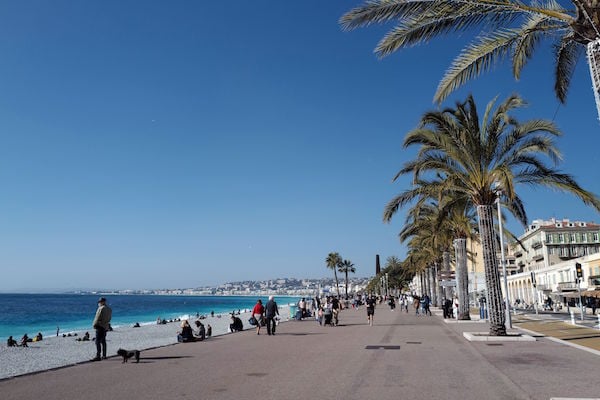Health Minister Olivier Veran said after visiting a Nice hospital this weekend the measures could include a stricter form of the curfew imposed nationwide in France or a weekend lockdown in the city.
A decision was expected later Sunday February 21st or on Monday February 22nd, with Nice recording 700 positive cases per 100,000 inhabitants, three times the national average.
“Consultations will be conducted over the weekend to take additional measures to stem the epidemic, ranging from a reinforced curfew to local lockdown at weekends,” Veran said.
France has so far avoided imposing a third nationwide lockdown to fight the virus, in contrast with some of its neighbours, in what analysts see as a risky gamble by President Emmanuel Macron to allow the economy to gain some
steam.
If agreed, the new restrictions would likely extend over all the southern Alpes-Maritimes region which includes Nice, but not beyond.
Senior French hospitals official Remi Salomon described the epidemic on BFMTV as “out of control” in the region and said measures taken in recent weeks have not been sufficient.
Local right-wing MP Eric Ciotti told the Nice Matin newspaper that the decision appeared to have already been taken and a weekend lockdown was on the cards.
This measure has long been urged by Nice’s high-profile Mayor Christian Estrosi, also a member of right-wing party The Republicans, even if his opinion is not shared by all fellow mayors along the coast.
Currently mainland France has a nightly curfew beginning at 6pm. The only part of the country with a lockdown in place is the Indian Ocean island of Mayotte where the measure has been in effect since February 5th.
The curfew has been credited with keeping a lid on infection rates but government spokesman Gabriel Attal said on French TV late Saturday the latest trends were “not good”.
After a slow start, France’s vaccination campaign has gained some momentum with more than 2.5 million people receiving a dose and, of those, over 1.1 million have had both doses.



 Please whitelist us to continue reading.
Please whitelist us to continue reading.
Member comments